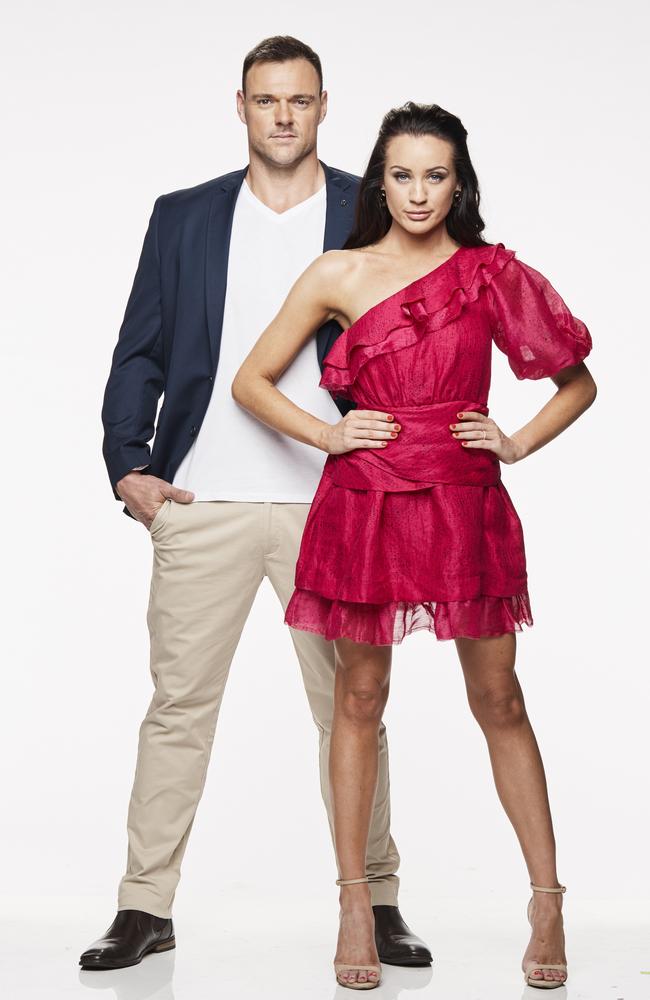Experts reveal how to argue healthily with your partner
Ines and Bronson’s on-screen arguments have been extremely heated — now experts have weighed in on the controversial rows viewers watched.
The biggest problem with Ines and Bronson is that he wants the relationship and she doesn’t — that’s probably a given.
However, this doesn’t permit the way she chooses to speak to him.
Arguments are an inevitable part of any relationship, but it’s how you do it that will determine your survival odds, experts say.
Shahn Baker Sorekli, clinical psychologist and couple’s therapist said relationship conflicts cannot be resolved if either party is not willing to acknowledge their own behaviour.


“There is no chance for resolution without validation and acknowledgment,” Mr Sorekli said.
Taking MAFS’ Ines and Bronson as an example, there is no way the couple can move forward if there is no common ground.
“Another relationship block is when a person is holding on to perceptions and judgments about the other person rather then focusing on the ‘here and now’ connection and getting to know the person for who they are.
“These projections about the other person block the possibility for connection and communication.”
The Sydney-based relationship therapist said one of the biggest problems he comes across is that many couples believe relationships are about getting the other person to agree with you.
“It’s not — it’s about truly connecting and understanding the other person’s experience, emotions and point of view and once there’s that understanding they can decide to find a solution together such as taking care of one another’s emotional needs rather than trying to argue the logic of the situation,” Mr Sorekli said.

“In the case of the characters portrayed on TV of Bronson and Ines — what you have got is one person who is shutting down, who is feeling attacked, attacking back (Bronson) and who now has their walls up, limiting communication and inducing the eggshells effect.
“While the other party is in an attack mode (likely due to underlying vulnerability) — not invested in the relationship and is more concerned for her own needs, so the relationship is destined to fail.”
Sharon Draper, psychologist and eharmony’s dating expert agrees that there needs to be a willingness from both parties and while it might sound obvious to hear that communication is key — Ms Draper said in her 10 years of experience, there’s still many people who don’t know how to do this properly.

“Communication is important in any relationship — it’s the most important part because without it your relationship simply won’t work,” Ms Draper said.
“We always have ideas in our minds which the other person will never know if we don’t communicate our needs — instead we expect our partners to pick up on subtle cues.”
She said generally speaking, as not all females can be like this — the woman tends to be more in tune with their emotions and have expectations that men should pick up on how they are feeling.
“Guys then tend to try fix it and the female tends to feel dismissed — small things then become massive problems.
“I always teach people to breathe, respond then react — arguments can leave emotional wounds so it’s important to address emotional injuries after the conversation has resolved if you are still feeling hurt by what your partner said.”
Ms Draper has shared her top 5 tips on how to have a healthy argument.
TOP 5 TIPS ON HOW TO PROPERLY ARGUE:
Sharon Draper, Sydney psychologist and eharmony’s dating expert
1. Start softly
While it’s understandable that you might be upset about something, try to calm yourself before you start speaking about something potentially confronting. This will provide the healthiest space for your voice to be heard and for your partner to listen and understand your needs.
How you start your conversation usually predicts how it will end.
2. Be specific and take responsibility for your own part in the issue
Focus on the specific thing you want to say to your partner and avoid bringing up past challenges. Complain, don’t blame. Don’t use “you always” or “you never” when speaking.
If you can deal with things as they occur, you limit the intensity that builds around an issue which will help you take a more constructive approach.
3. Practice emotional attunement
Become more aware of your emotions. Identify how you usually deal with conflict. If you use one or all of the four horsemen (criticism), then you need to actively replace them with more healthy, productive ones.
Use “I feel …” statements rather than “you always/never …”
4. Talk about what you need, not what you don’t need
If we can state what we need, we can provide a constructive solution to the issue. This will help your partner understand you and it helps you see what you can both do in the future.
5. Be kind, listen carefully and compromise
Be Kind: Think of how you’d want them to treat you if you had made the mistake. Don’t wrestle to win, communicate to connect. Listen carefully: Feeling heard cultivates feeling connected. Use active listening (non-verbals: gentle eye contact, nodding head / verbals: “hmm mm”, “I understand” — only if you do understand).
Compromise: Negotiate and discover ways you can accommodate each other



